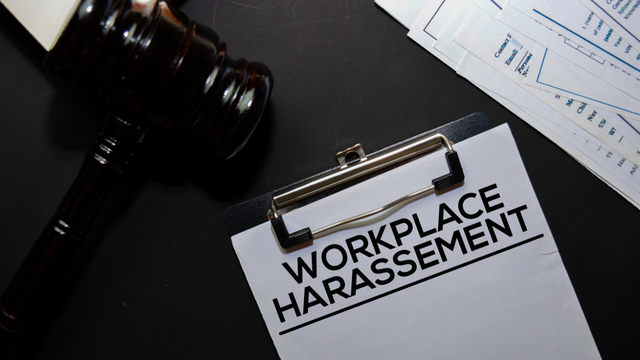A bill being called one of the most significant workplace reforms in decades means many employers will have to change the way they handle sexual harassment claims.
The bill, which passed the U.S. Senate on February 10 with bipartisan support, was led by two senators who don’t typically favor the same legislation: Democrat Kirsten Gillibrand of New York and Republican Lindsey Graham of South Carolina. The Ending Forced Arbitration of Sexual Assault and Sexual Harassment Act had already passed the House, and President Joe Biden has said he will sign it.
The legislation will make it illegal for employers to require employees to take sexual assault and harassment claims to arbitration instead of allowing them to sue in open court under Title VII of the Civil Rights Act of 1964. In addition to banning the practice going forward, the bill voids such policies already in place. It does not, however, affect cases previously settled under arbitration.
What Employers Need to Know
Mandatory arbitration policies are common in many kinds of workplaces, but such policies related to sexual harassment and assault now need to change.
“Employers should use this legislation as an opportunity to review their policy language in the harassment area, clean up as necessary and . . . review and change any arbitration documents to comply with what will be a new law,” Richard J. Morgan, an attorney with Burr & Forman LLP in Columbia, South Carolina, says.
The new legislation basically takes sexual harassment cases “back in court where Title VII cases historically have been,” Morgan says. “It will require employers who use mandatory arbitration clauses to review and revise those documents.”
With mandatory arbitration off the table, employers need other ways of handling claims. “Employers should already have in place a robust harassment policy that provides for reporting these cases, investigation of these kinds of cases, along with taking prompt remedial action to address the claims,” Morgan says. “All of these policies should include a nonretaliation component. The policies should be widely communicated and consistently enforced.”
Charles H. Kaplan, an attorney with Hodgson Russ LLP in New York City, also emphasizes the importance of training and reporting mechanisms. “The passage of this legislation is a reminder to employers that they need to have antiharassment policies that they back up with antiharassment training,” he says. “Further, management must carefully investigate and take needed corrective actions when faced with claims of sexual harassment, as well as other claims of unlawful harassment and other employment discrimination and workplace law violation allegations.”
Kaplan also points out civil rights advocates have been pressing to prohibit mandatory arbitration of employment discrimination, wage and hour, and other workplace law claims in addition to sexual harassment claims.
“However, there does not currently appear to be the necessary support in the U.S. Congress for legislation that would extend this ban on arbitration to other employment discrimination claims or to wage and hour or other workplace law claims,” Kaplan says. So, he advises employers to continue considering requiring arbitration agreements that include class action waivers for some types of employment claims.
But, Jourdan Day, an attorney with Porter Wright Morris & Arthur LLP in Columbus, Ohio, says she can foresee attempts to prohibit mandatory arbitration for claims in addition to sexual harassment claims. For example, someone making a disability discrimination claim may question why that kind of case must go to arbitration while sexual harassment claims don’t.
Day says it will be up to individual organizations to decide whether they want to continue having arbitration clauses for some claims or “whether it makes sense to treat them all the same and go through the court system.” She also urges employers to consider state law, since some states already have strong restrictions against mandatory arbitration.
Some History
Although the bill passed with bipartisan support, it took years to come to fruition. Gillibrand introduced it in 2017 as the #MeToo movement was gaining steam. She reintroduced it in 2021 along with Graham and others.
The bill also was championed by former Fox News anchor Gretchen Carlson, who made headlines when she found herself muzzled about her harassment claims against Roger Ailes, founder and CEO of Fox News. Ailes resigned from the company in 2016 after Carlson and other employees accused him of sexual harassment. He died in 2017. Carlson’s story was later made into the 2019 movie Bombshell.
The passage of the bill comes after attorneys general from all 50 states, territories, and Washington, D.C. — 56 in all — sent Congress a letter in February 2018. It called for passage of legislation “to protect the victims of sexual harassment in the workplace.” The letter asked Congress to “ensure these victims’ access to the courts, so that they may pursue justice and obtain appropriate relief free from the impediment of arbitration requirements.”
The letter said arbitration provisions may be beneficial in some contexts but not in sexual harassment claims. “Victims of such serious misconduct should not be constrained to pursue relief from decision makers who are not trained as judges, are not qualified to act as courts of law, and are not positioned to ensure that such victims are accorded both procedural and substantive due process,” the letter said.
The attorneys general also voiced concerns about the “veil of secrecy” created by arbitration clauses. “Ending mandatory arbitration of sexual harassment claims would help to put a stop to the culture of silence that protects perpetrators at the cost of their victims,” the letter said.
Tammy Binford writes and edits news alerts and newsletter articles on labor and employment law topics for BLR web and print publications.

